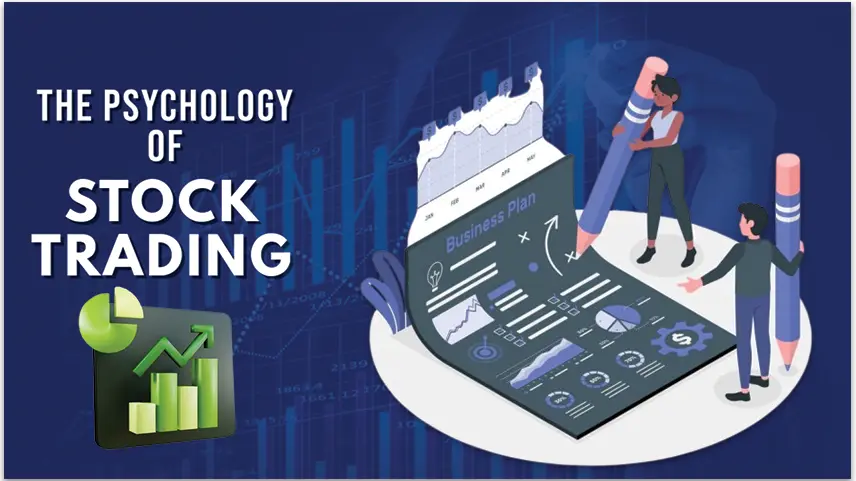The Psychology of Stock Trading
Stock trading, often hailed as a realm of numbers and data, is equally influenced by the intricate workings of human psychology. Behind the charts, algorithms, and financial models lies a complex interplay of emotions, biases, and cognitive processes that significantly impact trading decisions. In this article, we delve into the fascinating world of the psychology of stock trading, unraveling the psychological factors that drive market behavior, the cognitive biases that can lead to pitfalls, and strategies to navigate the tumultuous waters of the stock market.

Emotions and Market Behavior
The stock market is a cauldron of emotions, from euphoria to fear and greed to panic. The rise and fall of stock prices are often a reflection of collective emotional responses. When optimism abounds, stock prices soar; conversely, fear can lead to a sell-off. Understanding the emotional undercurrents driving market participants is essential to deciphering market trends and potential shifts.
Cognitive Biases: The Enemy Within
Human minds are prone to cognitive biases that can spell disaster in the world of stock trading. Confirmation bias, where traders seek information that validates their existing beliefs, can lead to overlooking crucial data that might suggest a different outcome. Anchoring bias, on the other hand, can tether traders to irrelevant reference points, clouding judgment. Awareness of these biases is the first step toward mitigating their impact.
The Role of Herd Mentality
Herd mentality is a powerful psychological force that can lead traders to blindly follow the crowd. When a stock is in vogue, the fear of missing out can drive traders to jump in, inflating prices. Similarly, panic can ensue as traders rush to exit a sinking stock. Recognizing the influence of herd behavior is essential to avoid being swept away by market sentiment.
Overcoming Fear and Greed
Fear and greed are two primal emotions that can drive stock trading decisions to extremes. Fear of loss can paralyze traders, preventing them from making rational decisions. Conversely, greed can lead to reckless risk-taking. Developing emotional discipline through techniques such as mindfulness and setting clear trading rules can help traders temper these potent emotions.
The Rational Investor Illusion
While rational decision-making is touted as the hallmark of successful investors, the reality is more nuanced. Behavioral economics suggests that even seasoned traders are susceptible to irrational decisions due to cognitive biases. Recognizing one's vulnerability to these biases and adopting systematic strategies can help navigate the tumultuous market landscape more effectively.
Strategies for Psychologically Sound Trading
Psychology-savvy traders often employ strategies to counteract emotional biases. Diversification, for instance, helps manage the risk of becoming overly emotionally invested in a single stock. Setting stop-loss orders can prevent losses from spiraling out of control due to emotional attachment. Regularly assessing one's trading performance with a rational eye can also prevent emotional patterns from taking root.
The Role of Trading Psychology in Long-Term Success
Beyond short-term fluctuations, trading psychology plays a pivotal role in achieving long-term success in the stock market. A sound psychological foundation allows traders to weather market storms without making impulsive decisions. Patience, discipline, and a commitment to ongoing self-awareness are key tenets in building a resilient trading psychology.
Conclusion
The psychology of stock trading reveals a layer of complexity under the surface of market charts and financial indicators. Emotional roller coasters, cognitive biases, and the influence of the crowd are all integral components of the trading landscape. Acknowledging and understanding the psychological dynamics at play can equip traders with the tools needed to make informed decisions, navigate volatility, and ultimately foster success in the dynamic world of stock trading.

0 comments